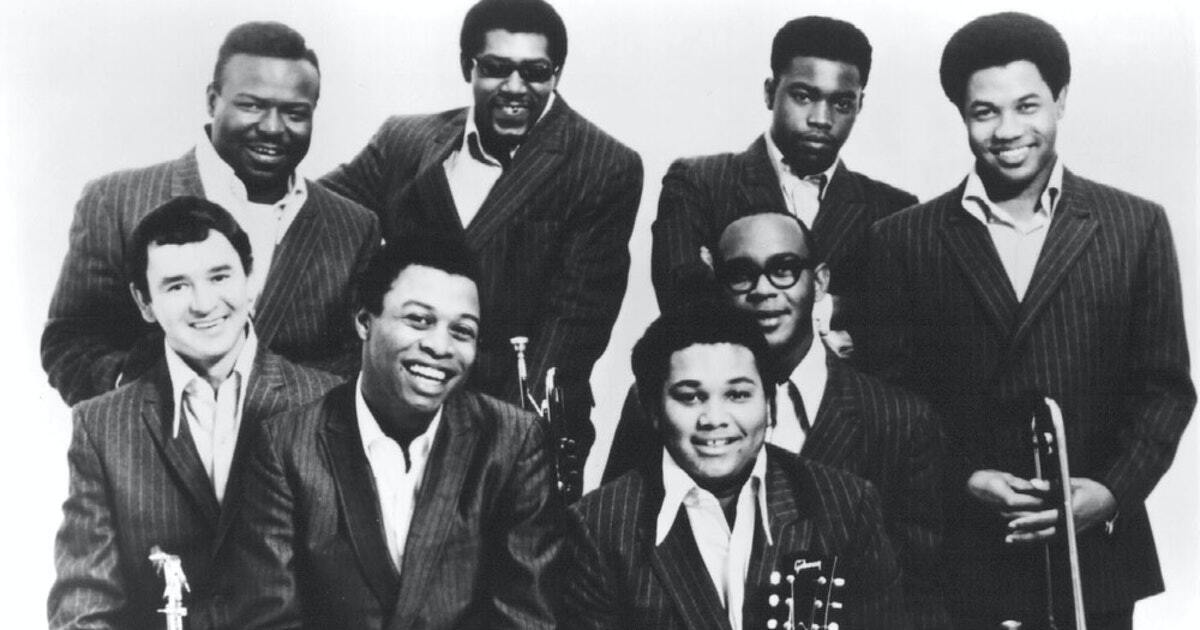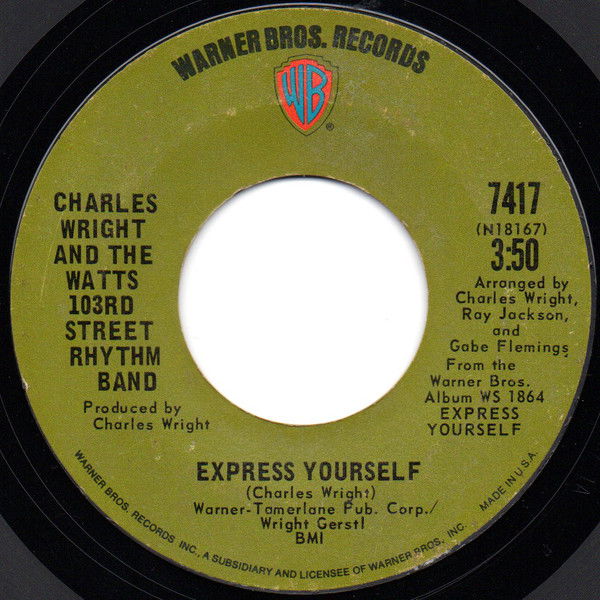CHARLES WRIGHT & THE WATTS 103rd STREET RHYTHM BAND

Charles Wright was born in Clarksdale, Mississippi, on April 6, 1940. By the early ‘50s, he was in Los Angeles, where he sang doo-wop with groups like the Turks, Twilighters, Shields, and Gallahads. He also worked briefly as an artists and repertoire man at Del-Fi Records and was behind the 1961 hit, “Those Oldies But Goodies (Remind Me of You)” by Little Caesar & The Romans.
In 1962, he formed his own band, Charles Wright & The Wright Sounds. Its line-up included pianist Daryl Dragon, who later became one half of the Captain & Tennille. They played venues all over L.A., including a three-year gig (1965-68) at the Haunted House in Hollywood.
It was record producer Fred Smith, who owned Keymen Records, that came up with the name Watts 103rd Street Rhythm Band. Smith produced a theme song for the Magnificent Montague, a disc jockey at KGFJ radio. It became so popular, Smith released it as a single by the Watts 103rd Street Rhythm Band under the title “Spreadin’ Honey.” Reportedly, the musicians who played on it included Charles Wright, Bobby Womack, and Leon Haywood.
After “Spreadin’ Honey” became a hit, the Magnificent Montague reissued it on Keymen’s MoSoul subsidiary as by the Soul Runners. As such, it was long assumed that the Soul Runners were an early incarnation of the Watts 103rd Street Rhythm Band. Charles Wright, however, insisted that they were two different bands who had nothing to do with each other.
In 1966, Wright and James Carmichael worked as session players at the Nashville West recording studio. The group was discovered by Fred Smith and comedian Bill Cosby, who needed a backing band for his next album, Silver Throat. Smith hired the Nashville West players and re-dubbed them the Watts 103rd Street Rhythm Band. Their association with Cosby got the group signed to Warner Brothers Records. They released their self-titled debut album in 1967. (It also became known as Hot Heat & Sweet Groove, after a sub-title on the rear cover.) Wright himself has disavowed this album as a true Watts 103rd Street project, insisting that their next LP, Together, was really the band’s first album.
When Cosby went on tour, Wright was put in charge of assembling a Watts 103rd Street touring band. It included the musicians on Hot Heat but also featured the Wright Sounds. Creative disagreements led to Fred Smith selling his interest in the group to Wright, who got rid of the Hot Heat players and kept the Wright Sounds.
On May 18, 1968, the band recorded their live show at the Haunted House. This became the partial basis for their second album, Together, and produced the hit single, “Do Your Thing,” a sparse funk jam they ad-libbed on-stage. Their next LP, Jungle Babe, contained the doo-wop influenced ballad, “Love Land.” The singles from this album were the first to be credited to Charles Wright & the Watts 103rd Street Rhythm Band.
The title track from their third LP, Express Yourself, became their biggest hit, reaching #3 on the Soul chart and #12 pop in the fall of 1970. Wright was improvising the wrap-up to “Do Your Thing” on-stage at Texas A&M when he ran out of things to say and began to repeat the phrase “express yourself” over and over again. When the audience went nuts, Wright went back to his motel room and built a song around it.
After the You’re So Beautiful album in 1971, the Watts 103rd Street Rhythm Band dissolved. Charles Wright went on to record four solo LPs. In 2007, he released Finally Got It Wright, his first album in 27 years. It included a re-recording of “Express Yourself.”
Wright described the Watts 103rd Street sound as “the middle ground between Otis Redding and James Brown.” It’s not hard to see why. Their music featured the razor-blade rhythms, horn outbursts and choked, scratchy guitar licks of mid ‘60s Brown, while Wright’s vocals split the difference between Redding and Sly Stone. As a songwriter, he simultaneously embraced hippie peace and love, black pride, soul carnality, and dance fever.
“Express Yourself” was sampled in 1988 by the rap group N.W.A. It also has turned up in numerous film soundtracks and a number of TV ads. Meanwhile, “Do Your Thing” was used in the 1997 movie, Boogie Nights.
Charted singles:
“Grits ‘N Corn Bread” (The Soul Runners, 1966) R&B #33
“Spreadin’ Honey” (The Watts 103rd Street Rhythm Band, 1967) R&B #44, Pop #73
“Do Your Thing” (The Watts 103rd Street Rhythm Band, 1969) R&B #12, Pop #11
“Till You Get Enough” (The Watts 103rd Street Rhythm Band, 1969) R&B #12, Pop #67
“Must Be Your Thing” (The Watts 103rd Street Rhythm Band, 1969) R&B #35, Pop #103
“Love Land” (1970) R&B #23, Pop #16
“Express Yourself” (1970) R&B #3, Pop #12
“Solution for Pollution” (1971) Pop #96
“Your Love (Means Everything to Me)” (1971) R&B #9, Pop #73
“(Well I’m) Doin’ What Cums Naturally” (Charles Wright, 1973) R&B #27

